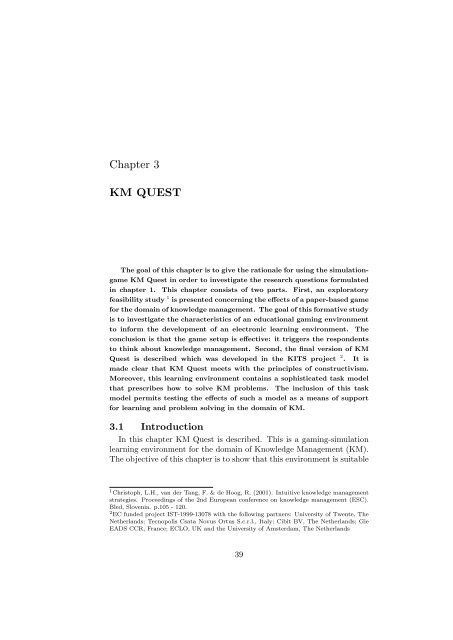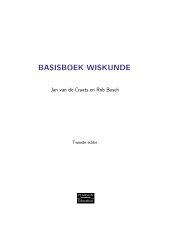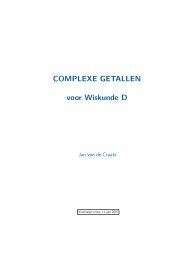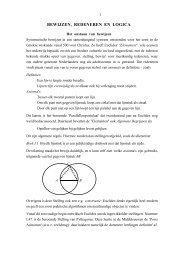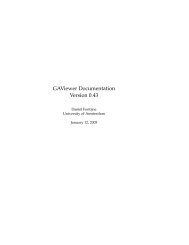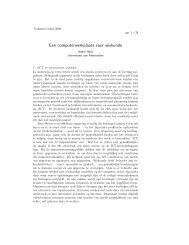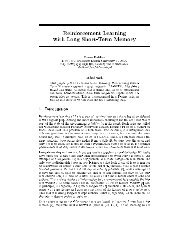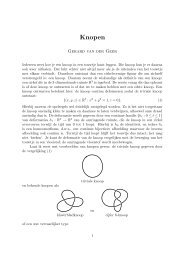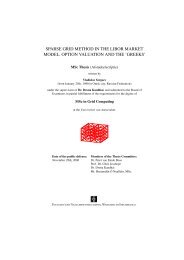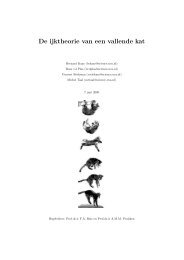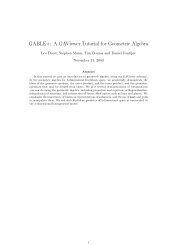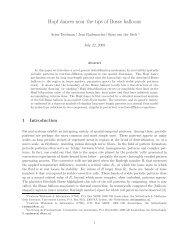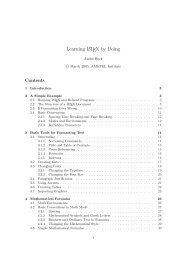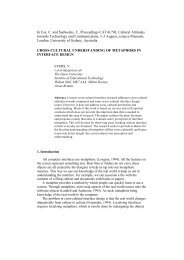The role of metacognitive skills in learning to solve problems
The role of metacognitive skills in learning to solve problems
The role of metacognitive skills in learning to solve problems
Create successful ePaper yourself
Turn your PDF publications into a flip-book with our unique Google optimized e-Paper software.
Chapter 3<br />
KM QUEST<br />
<strong>The</strong> goal <strong>of</strong> this chapter is <strong>to</strong> give the rationale for us<strong>in</strong>g the simulationgame<br />
KM Quest <strong>in</strong> order <strong>to</strong> <strong>in</strong>vestigate the research questions formulated<br />
<strong>in</strong> chapter 1. This chapter consists <strong>of</strong> two parts. First, an explora<strong>to</strong>ry<br />
feasibility study 1 is presented concern<strong>in</strong>g the effects <strong>of</strong> a paper-based game<br />
for the doma<strong>in</strong> <strong>of</strong> knowledge management. <strong>The</strong> goal <strong>of</strong> this formative study<br />
is <strong>to</strong> <strong>in</strong>vestigate the characteristics <strong>of</strong> an educational gam<strong>in</strong>g environment<br />
<strong>to</strong> <strong>in</strong>form the development <strong>of</strong> an electronic learn<strong>in</strong>g environment. <strong>The</strong><br />
conclusion is that the game setup is effective: it triggers the respondents<br />
<strong>to</strong> th<strong>in</strong>k about knowledge management. Second, the f<strong>in</strong>al version <strong>of</strong> KM<br />
Quest is described which was developed <strong>in</strong> the KITS project 2 . It is<br />
made clear that KM Quest meets with the pr<strong>in</strong>ciples <strong>of</strong> constructivism.<br />
Moreover, this learn<strong>in</strong>g environment conta<strong>in</strong>s a sophisticated task model<br />
that prescribes how <strong>to</strong> <strong>solve</strong> KM <strong>problems</strong>. <strong>The</strong> <strong>in</strong>clusion <strong>of</strong> this task<br />
model permits test<strong>in</strong>g the effects <strong>of</strong> such a model as a means <strong>of</strong> support<br />
for learn<strong>in</strong>g and problem solv<strong>in</strong>g <strong>in</strong> the doma<strong>in</strong> <strong>of</strong> KM.<br />
3.1 Introduction<br />
In this chapter KM Quest is described. This is a gam<strong>in</strong>g-simulation<br />
learn<strong>in</strong>g environment for the doma<strong>in</strong> <strong>of</strong> Knowledge Management (KM).<br />
<strong>The</strong> objective <strong>of</strong> this chapter is <strong>to</strong> show that this environment is suitable<br />
1 Chris<strong>to</strong>ph, L.H., van der Tang, F. & de Hoog, R. (2001). Intuitive knowledge management<br />
strategies. Proceed<strong>in</strong>gs <strong>of</strong> the 2nd European conference on knowledge management (ESC).<br />
Bled, Slovenia. p.105 - 120.<br />
2 EC funded project IST-1999-13078 with the follow<strong>in</strong>g partners: University <strong>of</strong> Twente, <strong>The</strong><br />
Netherlands; Tecnopolis Csata Novus Ortus S.c.r.l., Italy; Cibit BV, <strong>The</strong> Netherlands; Gie<br />
EADS CCR, France; ECLO, UK and the University <strong>of</strong> Amsterdam, <strong>The</strong> Netherlands<br />
39


